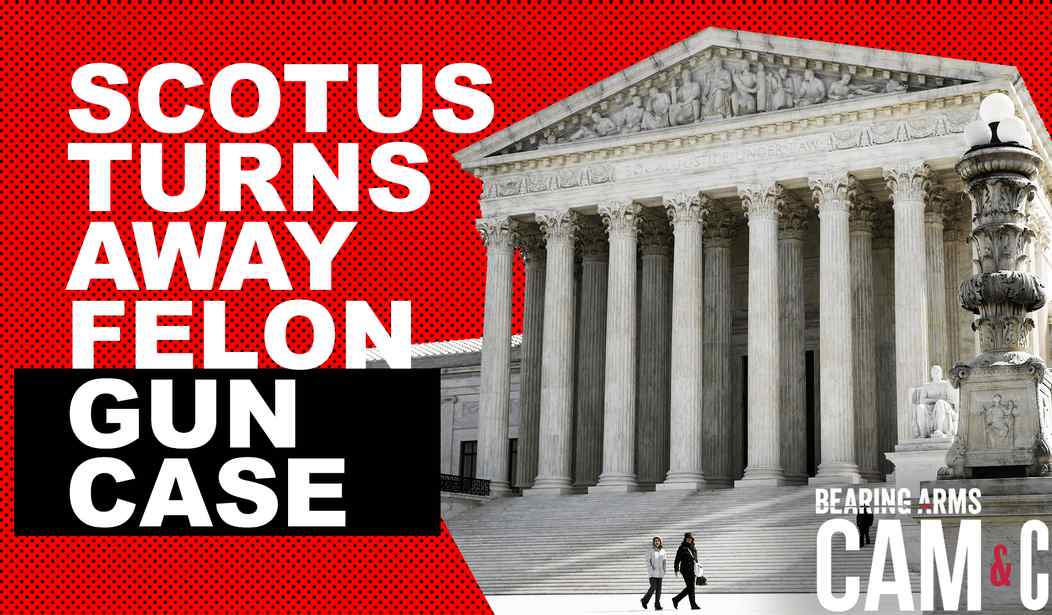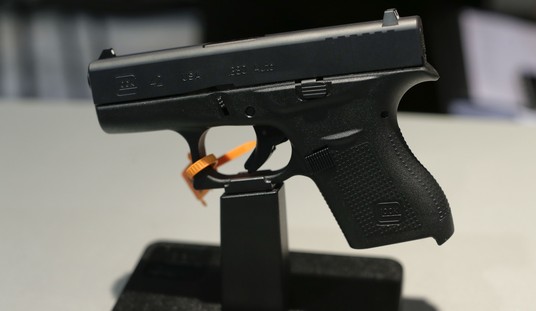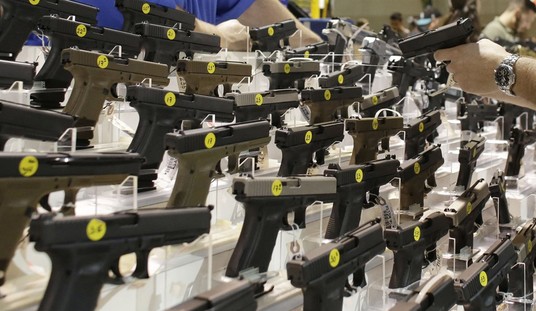The Supreme Court rejected an appeal without comment on Monday in the case of Israel Torres, an Arizona man who was hoping that he’d find at least four justices willing to hear his challenge to the federal prohibition on gun ownership for those convicted of felony offenses.
Not even Justice Amy Coney Barrett weighed in with a written dissent objecting to the Court’s decision not to accept Torres vs. United States, which the Court considered in conference on Friday. On today’s Bearing Arms’ Cam & Co. we not only discuss the potential reasons why SCOTUS decided to pass on the Torres case, as well as take a closer look at three other challenges from prohibited persons that the Court will have a chance to consider in the coming weeks.
You’ll remember that Barrett has argued that a felony conviction alone shouldn’t automatically come with a lifetime loss of gun rights. Instead, she argued that the historical record and tradition of the right to keep and bear arms limits those bans to individuals who’ve been found to be “dangerous.” It may very well have been the case that Barrett and other justices viewed Torres’ case as an unwieldy vehicle to take on current federal law, given that his two felony convictions both involve DUI offenses.
There’s also a DUI involved in the prohibited person case that the Court will weigh in on next, but in that case we’re dealing with a misdemeanor DUI conviction that dates back to 2005. Under Pennsylvania state law Raymond Holloway didn’t forfeit his right to keep and bear arms after that conviction, but under federal law he lost his Second Amendment rights all the same.
Holloway has stayed out of trouble ever since, and the Firearms Policy Coalition, which is representing Holloway in his case, argues that the case “presents an excellent vehicle to clarify whether and how prohibited persons can bring successful as-applied challenges to laws forever denying their fundamental right to keep and bear arms,” since the Pennsylvania man is neither a felon nor should be considered “dangerous.”
SCOTUS is scheduled to take up Holloway at its January 7th conference, and a week later they’re set to consider granting cert in a case called McGinnis vs. Barr. I’d honestly be surprised if the Court decides to take up McGinnis, which deals with an individual who was convicted not only of possessing a firearm and ammunition after a protective order had been taken out against him, but was also convicted of possessing a short-barreled rifle that wasn’t registered under the National Firearms Act.
The circumstances in McGinniss are more complicated than what justices will find in Holloway, and they’re likely to look for a clear cut question in taking up a case that addresses the loss of Second Amendment rights.
The easiest case of all, at least in terms of ruling on the dangerousness of the prohibited person, could soon be scheduled for a future conference date. Last Friday, the FPC filed a cert petition in the case of Folajtar vs. Barr, yet another challenge to the lifetime loss of gun rights upon a felony conviction.
In this case a woman named Lisa Folajtar was convicted of making a false statement on her tax return and lost her right to keep and bear arms as a result. It’s hard to argue that Folajtar is dangerous, and legal scholars like Jonathan Turley have said that the case seems almost tailor-made for Justice Amy Coney Barrett given the circumstances of the case and the question posed.
I’d look for Folajtar to be considered in conference in late January or sometime in February, and by then several additional Second Amendment cases could also be pending review by the Court, including a challenge to New Jersey’s ban on ammunition magazines that can hold more than ten rounds and the Young case taking on the state of Hawaii’s ban on openly carried firearms without a license.
2020 will be remembered by gun owners as the year that the Supreme Court punted on a gun control case out of New York, but 2021 looks far more promising for those hoping to find legal relief from unconstitutional infringements on our right to keep and bear arms.









Join the conversation as a VIP Member